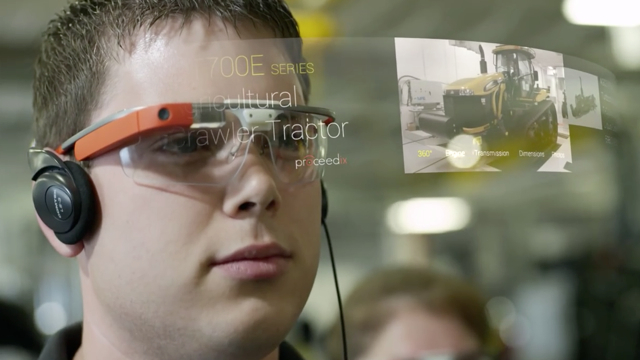At this week’s Google Cloud Next conference, Israeli company Plataine demonstrated a new app for Google Glass, pointing to artificial intelligence as the technology that will drive the success of the spectacles. The easy-to-use app, which is aimed at factory workers, understands and replies in spoken language. Plataine’s clients already include Airbus, Boeing and GE, and the company is now working on adding image recognition capabilities to the app, which was built using Google Cloud AI services and support from the tech giant.
Wired reports that “Google is betting that charging other companies to tap AI technology developed for its own use can help the cloud business draw customers away from rivals Amazon and Microsoft.” Google Cloud’s CTO office technical director Jennifer Bennett noted that, “Glass has become a really interesting technology for the enterprise,” working well “in situations where a laptop or smartphone would be awkward.”
The app comes “roughly one year after Google abandoned its attempt to sell consumers on Glass and its eye-level camera and display, which proved controversial due to privacy concerns.”
The gadget was relaunched as Google Glass Enterprise Edition, a tool for business, and “pilot projects have involved Boeing workers using Glass on helicopter production lines, and doctors wearing it in the examining room.” (Pictured above is a similar example from a story we ran last year about business, training and manufacturing uses of Google Glass.)
Plataine product lead Anat Karni demonstrated the app, showing how it “could tell a worker clocking in for the day about production issues that require urgent attention, and show useful information for resolving problems on the device’s display,” and also “talk to Plataine’s app to get help.” “A worker’s actions could be instantly visible to factory bosses, synced into the software Plataine already provides customers, such as Airbus, to track production operations.”
Plataine built the app by “plugging Google’s voice-interface service, Dialogflow, into a chatbot-like assistant it had already built,” and also getting support from Google partner, software contractor Nagarro.
Karni revealed that, “her team is now working with Google Cloud’s AutoML service to add image-recognition capabilities to the app, so it can read barcodes and recognize tools.”
University of California Irvine professor Gillian Hayes, who specializes in human-computer interaction, said Plataine’s app, utilizing Google’s AI capabilities, plays to Glass’ strength. “Spaces like manufacturing floors, where there’s no social norm saying it’s not OK to use this, are the spaces where I think it will do really well,” she said. “Image and voice recognition technology getting better will make wearable devices more functional.”


No Comments Yet
You can be the first to comment!
Sorry, comments for this entry are closed at this time.